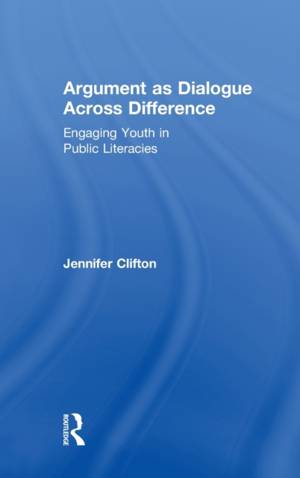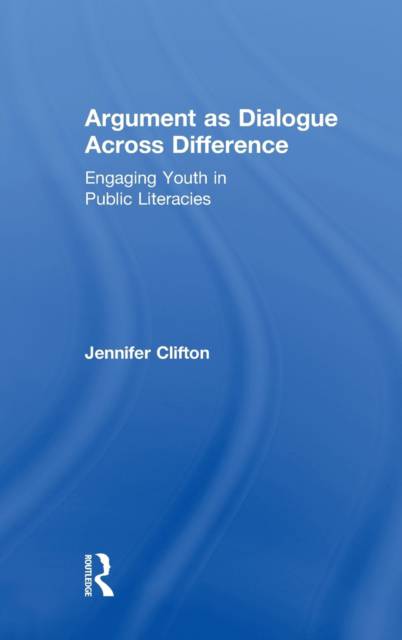
- Retrait gratuit dans votre magasin Club
- 7.000.000 titres dans notre catalogue
- Payer en toute sécurité
- Toujours un magasin près de chez vous
- Retrait gratuit dans votre magasin Club
- 7.000.000 titres dans notre catalogue
- Payer en toute sécurité
- Toujours un magasin près de chez vous
Argument as Dialogue Across Difference
Engaging Youth in Public Literacies
Jennifer Clifton
Livre relié | Anglais
320,95 €
+ 641 points
Format
Description
In the spirit of models of argument starting with inquiry, this book starts with a question: What might it mean to teach argument in ways that open up spaces for change--changes of mind, changes of practice and policy, changes in ways of talking and relating? The author explores teaching argument in ways that take into account the complexities and pluralities young people face as they attempt to enact local and global citizenship with others who may reasonably disagree. The focus is foremost on social action--the hard, hopeful work of finding productive ways forward in contexts where people need to work together across difference to get something worthwhile done.
Spécifications
Parties prenantes
- Auteur(s) :
- Editeur:
Contenu
- Nombre de pages :
- 164
- Langue:
- Anglais
Caractéristiques
- EAN:
- 9781138665927
- Date de parution :
- 08-12-16
- Format:
- Livre relié
- Format numérique:
- Genaaid
- Dimensions :
- 152 mm x 229 mm
- Poids :
- 412 g







